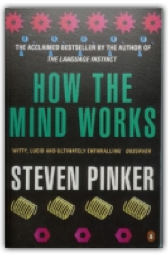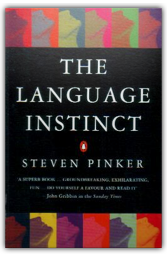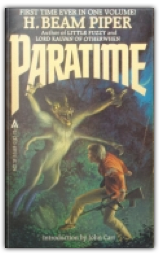 Words and Rules
Steven Pinker
Words and Rules
Steven Pinker
Steven Pinker has a very good ear; you know it instantly from his prose: elegant, accessible and very witty indeed. In Words and Rules, Pinker picks apart our language to reveal pro found truths about how we think.  How the Mind Works
Steven Pinker
How the Mind Works
Steven Pinker
Why do fools fall in love? Why does a man's annual salary, on average, increase £375 with each inch of his height? When a crack dealer guns down a rival, how is he just like Alexander Hamilton, whose face is on the 10-dollar bill? How do optical illusions function as windows on the human soul? Cheerful, cheeky, occasionally outrageous MIT psychologist Steven Pinker answers all of the above and more in his marvellously fun, awesomely informative survey of modern brain science. Pinker argues that a combination of Darwin's theories and some canny computer programs are the key to understanding ourselves—but he also throws in apt references to Star Trek, Star Wars, The Far Side, history, literature, W.C. Fields, Mozart, Marilyn Monroe, surrealism, experimental psychology and Moulay Ismail the Bloodthirsty and his 888 children. If How the Mind Works were a rock show, tickets would be scalped for £100. This book deserved its spot at the top of the bestseller lists. It belongs on a short shelf alongside such classics as Darwin's Dangerous Idea: Evolution and the Meanings of Life, by Daniel C. Dennett, and The Moral Animal: Why We Are the Way We Are: The New Science of Evolutionary Psychology, by Robert Wright. Pinker's startling ideas pop out as dramatically as those hidden pictures in a Magic Eye 3D stereogram poster, which he also explains in brilliantly lucid prose.  Fat Men From Space
Daniel Manus Pinkwater
Fat Men From Space
Daniel Manus Pinkwater
Through his radio tooth, William learns of an invasion by spacemen who are taking all of earth's supply of junk food. |
 Made with Delicious Library
Made with Delicious Library
London, State zipflap congrotus delicious library Scott, Mike












